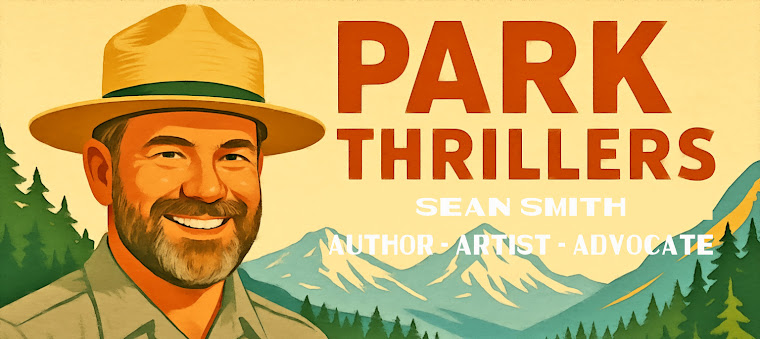 |
| "Sentinel Bridge & Half Dome" by Jim Getchell |
In August the National Park Service
(NPS) will celebrate its 99th birthday, and begin what’s expected to
be a yearlong celebration leading to its centennial in 2016. Americans can
expect 365 days of events, speeches, and celebrations. But many are wondering
if the centennial will cause the NPS to take a serious look at its management.
The history of the National Park
Service’s (NPS) recreation management is a mixed bag at best. Yellowstone, the
world's first national park, was set aside in 1872 as "pleasuring-ground" to protect from injury or spoilation, of all timber, mineral deposits,
natural curiosities, or wonders within.” Later in 1916, Congress established
the National NPS with its primary mission being"....to conserve the scenery
and the natural and historic objects and the wild life therein and to provide
for the enjoyment of the same in such manner and by such means as will leave
them unimpaired for the enjoyment of future generations."
From nearly day
one, many have maintained that congress gave the NPS a dual mandate, one that
requires the NPS to "balance" preservation with recreation. Yet
despite the fact that neither the Organic nor Yellowstone Acts mention recreation
specifically, this perceived need to balance conservation with recreation
doesn't comply with federal law, court cases or even NPS policy.
Congress recognizing the confusion
some had over its original intent in the 1916 Organic Act passed additional
legislation that America's National Parks are to be managed as a single system
and that no activity is to be authorized "in derogation of the values and purposes for which [the parks]
have been established.” In other words, recreation or use can only be
authorized if it doesn’t degrade the parks.
The NPS knows they
only have one mandate. In its 2006 management policies the agency states "when there is a conflict between conserving resources and
values and providing for enjoyment of them, conservation is to be predominant.
This is how courts have consistently interpreted the Organic Act." As such,
the NPS understands that it can only authorize those activities that are
"appropriate" for the national parks.
This language plainly implies that
not all activities are appropriate for the park system, or put another way some
are inappropriate. Moreover, the guidance implies that the potential list of
appropriate activities should be extremely small.
It couldn't be more clear that conservation
of park resources is the NPS' primary mission. Yet, despite Congress' intent, the NPS' belief in its dual mandate still persists. Why?
Sadly, it's because the agency's
actual approach to recreation management is far more lax than the law requires
and some believe is an abuse of their discretionary authority.
A recent Freedom of Information Act
(FOIA) request revealed the NPS has not completed even one system wide
recreation review. Just as troubling the agency doesn't know of a single park
that has ever conducted a comprehensive recreation review either. So, despite
Congress' clear intent, it appears the NPS lacks even a basic understanding of recreation
impacts.
Yet, this failure to fully investigate
likely led to far more liberal recreation management than Congress intended. Sadly,
with no information the NPS seems to conclude there is no problem, a kind of
see no evil, there is no evil self-perpetuating management cycle.
Without a comprehensive recreation
review it’s impossible for the NPS to say it’s complying with its legal
mandates to leave park resources unimpaired for the enjoyment of future
generations.
However, despite this lack of
information the NPS nearly every year considers
and accommodates new
and arguably questionable recreation. In the meantime, the agency has no way of
knowing the impact upon the system’s natural wonders and wildlife. Many ask
where is the balance?
In 2016, the NPS will
celebrate its 100 anniversary. The federal government is already making preparations
to rightly celebrate what some have called "America's greatest gift to
world culture." Early plans include public events across the country, with
an emphasis being placed on reconnecting the people to their parks. Many argue
this re-connection is necessary because the parks are losing relevance.
Hogwash!
Last year the National Park System
saw record visitation. Many individual parks like Montana's Glacier
broke visitation numbers as well. Americans and the world love the national
parks. Why? A case could be made it’s because national parks provide some of
the last truly authentic experiences. They are places where one can escape the
stress and hassle of everyday life and connect with something bigger.
Sadly, it appears the NPS has
forgotten this simple fact, as it moves forward with plans to authorize an ever
expanding list of questionable activities, partnerships, and events. Yet we shouldn’t forget the only
reason we are able to debate the park system's relevance today, is because our
ancestors put aside their short-term wants and desires and set it aside.
The NPS’ upcoming 100th
anniversary celebration is sure to include many parties, special events, and
speeches in honor of its mission. Perhaps to truly honor its mission the NPS
should bring actual balance to its management and conduct its first
comprehensive recreation review. If it does, future generations are certain to
thank us for our foresight.
Sean Smith is a former Yellowstone
Ranger, and an award winning conservationist, TEDx speaker, and author. He
writes national park thrillers from his home in the shadow of Mount Rainier
National Park. To learn more about his thrillers click here or follow him on twitter: @parkthrillers



Hogwash is right, Sean. My family and I live for National Parks as we visit one each year for vacation. National Parks are crucial for the human race to enjoy, learn from, and care for this earth of ours. The U.S. was smart to set aside these lands in the beginning. Let's not mess it up now, 100 years from that first brilliant act of our forefathers. Thanks for sharing this with your readers, Sean.
ReplyDelete